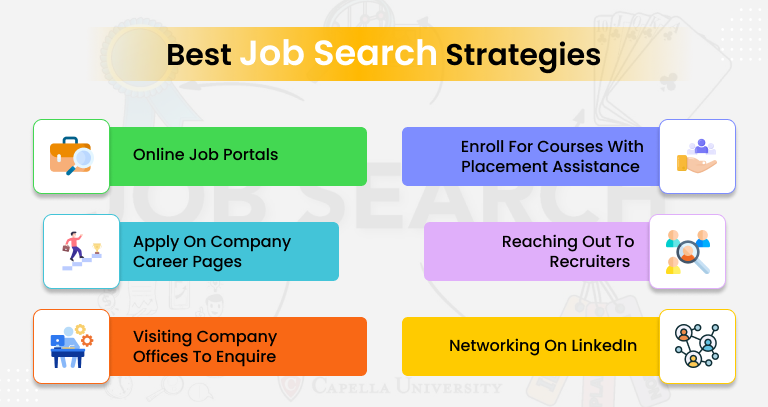In the ever-evolving landscape of the job market, gaining a competitive edge has become crucial for students and recent graduates. It’s no longer enough to possess a college degree; employers are looking for real-world experience, and that’s where internships and co-op programs come into play. In this comprehensive guide, we’ll delve into the world of internships and co-ops, their significance, and how to leverage them for your career development.
What are Internships and Co-ops?
Internships and co-op (short for cooperative education) programs are structured work experiences designed to provide students and emerging professionals with practical exposure to their chosen field of study. While both internships and co-ops offer hands-on experience, they differ in their format and duration.
Internships:
Internships are typically short-term, ranging from a few weeks to several months. They can be part-time or full-time and are often offered during the summer or academic breaks. Internships are common in a wide range of industries and serve as an introduction to a profession. They may be paid or unpaid, and the focus is on learning and gaining a glimpse into the work environment.
Co-op Programs:
Co-op programs, on the other hand, are more extensive and structured. They often involve a longer-term commitment, spanning several months to a year. Co-op students alternate between work and study semesters, allowing them to apply classroom knowledge to real-world situations. Co-op programs are commonly paid, and the experience gained is usually more in-depth.
The Importance of Internships and Co-ops
Internships and co-op programs have gained significant importance in recent years, and for good reason. Here are some of the key reasons why they matter for your career development:
Real-World Experience: These programs provide the invaluable opportunity to apply classroom knowledge in a practical setting. They bridge the gap between theory and practice, helping you understand how your education translates into your chosen profession.
Networking Opportunities: Internships and co-op positions allow you to build a network of industry contacts and mentors. These connections can be instrumental in securing job offers and advancing your career.
Skill Development: You gain new skills and hone existing ones while working in a professional environment. These skills are not just technical but also include soft skills like communication, teamwork, and problem-solving.
Resume Enhancement: Having internships and co-op experiences on your resume signals to potential employers that you are proactive, motivated, and have practical knowledge. It can set you apart from other candidates in a competitive job market.
Exploring Career Paths: These opportunities provide a chance to explore different roles and industries. You can test the waters and determine whether a particular career path aligns with your interests and goals.
Increased Employability: A well-rounded resume with internships or co-op experience makes you a more attractive candidate to employers. It demonstrates your commitment to your field and willingness to invest time in your professional growth.
How to Make the Most of Your Internship or Co-op
Now that we understand the significance of internships and co-ops, let’s explore how to maximize the benefits of these programs:
- Set Clear Goals:
Before starting your internship or co-op, define your objectives. What skills do you want to acquire? What knowledge do you aim to gain? Having clear goals will help you make the most of your experience. - Seek Mentorship:
Don’t be afraid to ask for guidance from your supervisors or colleagues. A mentor can provide valuable insights and offer advice on how to succeed in your chosen field. - Embrace Challenges:
During your work experience, you’ll likely encounter challenges. Embrace them as opportunities for growth and problem-solving. Overcoming obstacles can be a powerful learning experience. - Network Actively:
Build and nurture professional relationships during your internship or co-op. Attend company events, connect on LinkedIn, and seek out informational interviews with professionals in your industry. - Reflect and Learn:
Periodically assess your progress and reflect on your experiences. What have you learned? What could you have done better? Use this self-evaluation to continuously improve. - Document Your Achievements:
Keep a record of your accomplishments, whether it’s completing a project, receiving positive feedback, or acquiring new skills. These achievements will be valuable when updating your resume. - Stay Open to Feedback:
Constructive criticism is an opportunity for growth. Be receptive to feedback from your superiors and peers, and use it to enhance your performance. - Explore Different Departments:
If possible, explore various aspects of the company or organization. Learning about different departments can give you a broader understanding of the industry. - Stay Professional:
Always maintain a professional attitude. Punctuality, a strong work ethic, and a positive attitude will leave a lasting impression on your colleagues. - Ask for References:
Towards the end of your internship or co-op, request letters of recommendation or references from your supervisors. These endorsements can be beneficial when applying for future opportunities.
The Future Benefits of Internships and Co-op Experiences
The positive impacts of internships and co-op programs don’t end when your work term concludes. The skills, knowledge, and connections you gain can influence your career path in various ways:
Job Offers: Many interns or co-op students receive job offers from the organizations where they interned. This can fast-track your career and provide stability upon graduation.
Industry Connections: The relationships you build can lead to mentorships, collaborations, and opportunities for growth throughout your career.
Enhanced Resume: The experience gained in these programs will continue to bolster your resume, making you a desirable candidate for future job applications.
Confidence Boost: Having successfully completed internships or co-ops, you’ll enter the job market with a greater sense of confidence and readiness.
Exploration and Specialization: Your experiences can help you narrow down your career interests or guide you toward a specific specialization within your field.
Leveraging Internships and Co-ops for Career Success
In a competitive job market, where every advantage matters, internships and co-op experiences are invaluable assets. They provide not only an opportunity to learn but also a platform to showcase your potential to future employers. To leverage these experiences for career success, make the most of your time as an intern or co-op student, and don’t underestimate the long-term benefits these programs can offer.
Investing in your career through internships and co-ops can set you on a trajectory for professional growth and open doors to exciting opportunities in your chosen field. As you embark on your journey, remember that internships and co-op programs are not just checkboxes on your resume but transformative experiences that can shape your career for years to come. So, seize the opportunity, learn, grow, and let your internship or co-op be the first step towards a bright and successful future.





